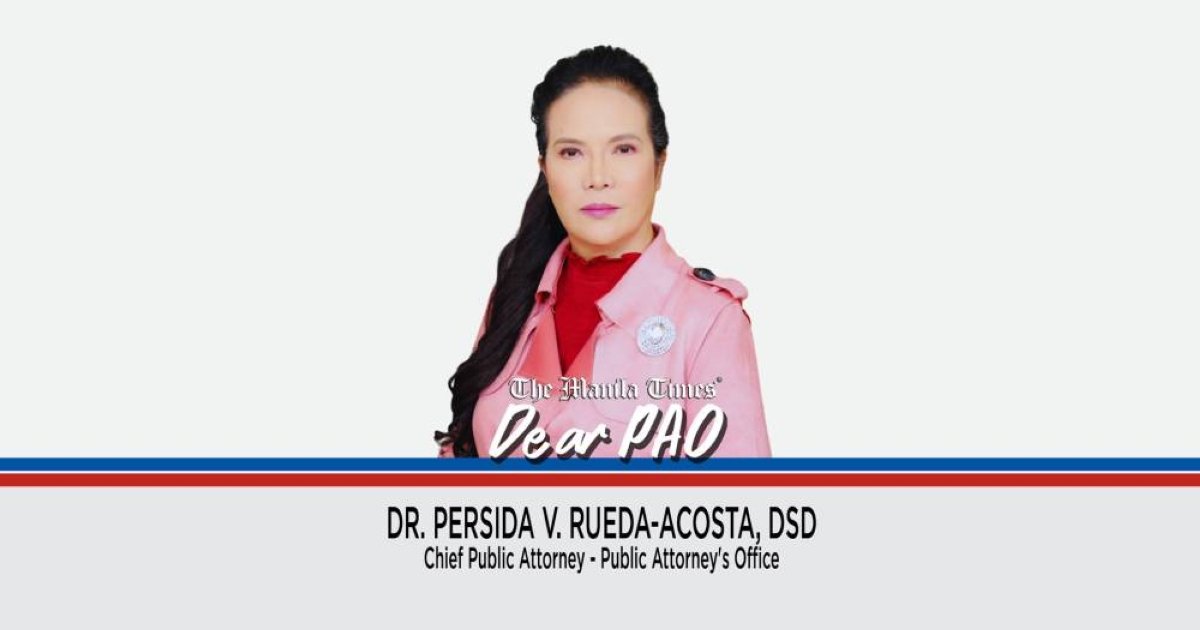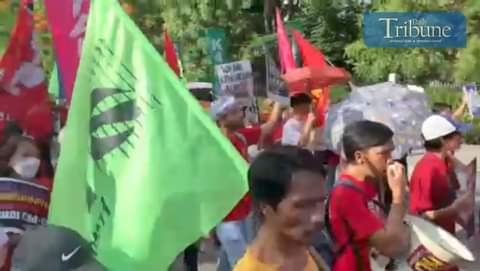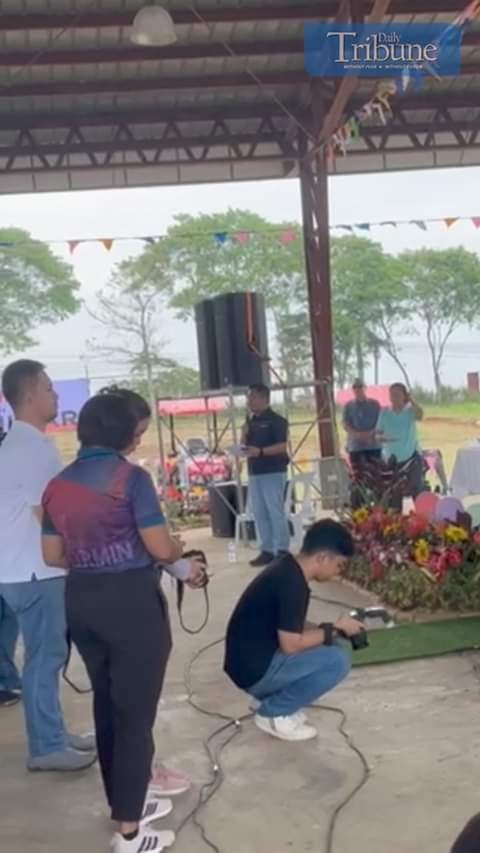Dear PAO,
Our neighbor’s son, around 19 years old, along with two of his friends, was arrested for a drug-related violation. From what I have heard, there was neither a representative from the media nor from the fiscal’s office during the inventory of the confiscated drugs. Is the absence of such a representative crucial to the case? Someone who was there during the inventory, who requested to remain anonymous for now, said that the arresting officers did not even make an effort to have a representative of the media or fiscal’s office attend the inventory. So, he was surprised to learn that the arresting officers stated in their report that they made such an effort when they actually did not. What can happen if the failure of the arresting officers is later proven?
Perry
Dear Perry,

The presence of a representative of the National Prosecution Service (NPS) or the media during the physical inventory of confiscated drugs in drug-related arrests is necessary. However, their absence will not invalidate the seizure and custody of such drugs so long as there are justifiable grounds thereto and the integrity and evidentiary value of the seized items have been properly preserved.
Section 21 (1) of Republic Act 9165, as amended by Republic Act 10640, specifically states:
“SEC. 21. Custody and Disposition of Confiscated, Seized, and/or Surrendered Dangerous Drugs, Plant Sources of Dangerous Drugs, Controlled Precursors and Essential Chemicals, Instruments/Paraphernalia and/or Laboratory Equipment. – x x x
“(1)The apprehending team having initial custody and control of the dangerous drugs, controlled precursors and essential chemicals, instruments/paraphernalia and/or laboratory equipment shall, immediately after seizure and confiscation, conduct a physical inventory of the seized items and photograph the same in the presence of the accused or the person/s from whom such items were confiscated and/or seized, or his/her representative or counsel, with an elected public official and a representative of the National Prosecution Service or the media who shall be required to sign the copies of the inventory and be given a copy thereof: x x x Provided, finally, That non-compliance of these requirements under justifiable grounds, as long as the integrity and the evidentiary value of the seized items are properly preserved by the apprehending officer/team, shall not render void and invalid such seizures and custody over said items.
“x x x”
In the situation in which you have presented, we submit that the seizure and custody of drugs may be invalidated and the persons accused may be acquitted if it can be clearly established that there was no representative from the NPS or media during the conduct of the physical inventory, that the arresting officers made no effort to secure the presence of said representatives, and that there is no justifiable reason for such absence.
The Supreme Court has emphasized that the requirements under the aforementioned law are important so as to ensure that the integrity and evidentiary value of the seized item/s are not to be compromised; otherwise, acquittal will be rendered in favor of the accused:
“Finally, in explaining the procedural lapse/s, People v. Umipang stressed that the prosecution must establish the fact that genuine and earnest efforts were employed in contacting and securing the presence of the representatives enumerated under Section 21 (1), Article II of RA 9165, or that there was a justifiable ground for failing to do so, so as to convince the Court that the failure to comply was reasonable under the given circumstances. x x x
“Notably, the absence of a DOJ representative during the inventory and photography of the seized drugs is not per se fatal to the prosecution’s cause. However, as earlier intimated, it is incumbent upon the prosecution to demonstrate that genuine and earnest efforts were employed in securing the presence of the DOJ representative or that there exists a justifiable reason for non-compliance. Here, the police officers, in their affidavits, merely stated that ‘the team exerted efforts to contact any representative from the Department of Justice but to no avail.’ Far from satisfying the legal requirement, this statement partakes of a mere general conclusion that is bereft of any discernible detail regarding the steps and efforts the police officers had undertaken to secure the presence of the DOJ representative.
“As the Court held in People v. Umipang, ‘[a] sheer statement that representatives were unavailable — without so much as an explanation on whether serious attempts were employed to look for other representatives, given the circumstances — is to be regarded as a flimsy excuse’ — as in this case — and hence, not a valid excuse for non-compliance.”
At this juncture, it must be emphasized that the procedure in Section 21, Article II of RA 9165 is a matter of substantive law and cannot be brushed aside as a simple procedural technicality. Accordingly, in light of the unjustified breach of procedure, as explained above, the Court is impelled to conclude that the integrity and evidentiary value of the corpus delicti had been compromised. As such, the acquittal of the accused-appellant, Leonila, is in order. (People of the Philippines vs. Joseph Pontijos Libre @ “Joyjoy” and Leonila Pueblas Libre, GR. 235980, Aug. 20, 2018, Ponente: Associate Justice Estela Perlas-Bernabe)
We hope that we were able to answer your queries. Please be reminded that this advice is based solely on the facts you have narrated and our appreciation of the same. Our opinion may vary when other facts are changed or elaborated on.
Editor’s note: Dear PAO is a daily column of the Public Attorney’s Office. Questions for Chief Acosta may be sent to [email protected]










